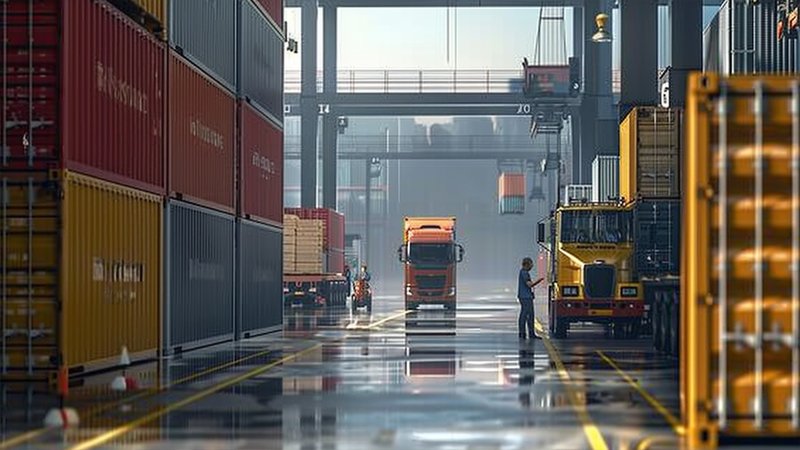
I used to think navigating the global supply chain was impossible—until I worked with a sourcing agent.
A sourcing agent helps find trustworthy suppliers, negotiate deals, manage product development, and oversee quality to streamline your import process.
They’ve become my go-to partner.
What are the main functions of a sourcing agent?
They spot reliable factories, negotiate terms, and ensure smooth communication.
Sourcing agents bridge gaps by locating quality suppliers, handling price talks, and managing all factory correspondence.

When I was first venturing into importing goods, my inbox was flooded with supplier emails. It felt overwhelming trying to figure out who was legit and who wasn’t. Then I hired a sourcing agent, and everything changed. She began by mapping out potential factories, checking their certifications, and assessing how responsive they were. Suddenly, I didn’t have to deal with countless back-and-forth messages or that nagging fear of being scammed.
A Closer Look at Their Functions
Working with a sourcing agent is like having a local guide in a foreign city. They understand cultural nuances—like which forms of communication factories prefer or how to politely push for better deals without damaging relationships. Many agents also track shipping schedules, coordinate logistics, and maintain tight deadlines.
They’re particularly useful if you have a niche product. For instance, if you need custom packaging or unique materials, the agent already knows which factories can handle your specs. They’re also the first to spot potential red flags—like inconsistent quotes or poor manufacturing practices—so you can avoid issues before placing big orders. Even for smaller businesses, an agent’s value can’t be overstated. They simplify your workload, letting you focus on marketing, customer service, or simply brainstorming your next product idea.
Through their local expertise, they cut through language barriers and business etiquette differences. If, for example, you’re new to negotiating in China, having someone who’s fluent in both Mandarin and negotiation strategies can mean the difference between a fair price and an inflated one. All in all, a sourcing agent’s role centers on trust, efficiency, and bridging the distance between you and your ideal factory.
What role do procurement agents play in product development?
They guide design, source raw materials, and streamline manufacturing steps.
Procurement agents help refine product concepts, ensuring feasible designs and steady material supply.

I once launched a custom fitness accessory and had no idea which fabric would meet my performance requirements. My procurement agent stepped in, suggesting sample materials from multiple suppliers. They even arranged lab testing for durability. Because they were familiar with each factory’s specialties, I could skip the guesswork. That saved me months of trial and error and countless dollars in wasted samples.
Product Development
During product development1, details can make or break your design—like the weight of a zipper or the dye composition in a textile. Procurement agents2 often collaborate closely with factories, gathering feedback on which components are most compatible. If you’re working on an electronic gadget, they might find specialized circuit-board manufacturers who can integrate your unique features. They’ll also check if certain designs comply with safety or quality standards in your target market.
Think of them as a backstage crew at a theater production. You, the business owner, have the vision for the grand performance (the final product), but the agent pulls the ropes, adjusts the lights, and ensures each actor (factory) knows their lines. By juggling tasks like sample approvals, prototyping timelines, and cost comparisons, they help you avoid last-minute chaos. If you’ve ever faced a product glitch just weeks before launch, you’ll appreciate an agent’s steady hand in managing design revisions or verifying that components arrive on time.
In essence, these agents bring your creative ideas into real-world production. Their insight reduces the likelihood of design flaws3 or material shortages partway through manufacturing. Plus, they’re well-positioned to negotiate better prices for bulk orders, making sure your cost per unit remains in line with your profit goals. For me, having a procurement agent early in the design phase has consistently paid off, allowing me to launch products that hit the mark without blowing my budget or schedule.
How can you utilize sourcing agents to optimize your supply chain?
They simplify logistics, ensure timely deliveries, and prevent costly missteps.
Sourcing agents coordinate shipping, handle customs details, and maintain a reliable flow of goods.

I remember a time when a container of goods got stuck at a port due to a missing document. Days turned into weeks, and I watched shipping fees climb. After that disaster, I realized how crucial a well-organized supply chain really is. That’s exactly where a sourcing agent shines. They tackle shipping schedules, compare freight costs, and double-check customs paperwork. Essentially, they remove the guesswork from the entire shipping process.
A Full View of Supply Chain Optimization
Let’s break down the supply chain. It starts with raw materials, moves through production, and ends with final delivery to your warehouse or retail location. A sourcing agent can step in at multiple points, whether it’s ensuring raw materials arrive at the factory on time or verifying that finished products pass quality inspections before shipping. Sometimes, they’ll also coordinate with freight forwarders or shipping companies, aligning everything so your goods arrive without delay.
Their local knowledge is invaluable for spotting potential bottlenecks—like holiday production slowdowns or changes in shipping regulations. Instead of you finding out last minute that factories will be closed for a festival, your agent can plan around it. They might arrange partial shipments or expedite certain goods if your inventory is running low. If you’re scaling up, they can also recommend backup suppliers who can help handle surges in demand.
Beyond the logistics, sourcing agents4 can often secure better shipping rates5 by consolidating goods from multiple clients or negotiating long-term relationships with freight providers. This collective bargaining power might lead to lower per-unit shipping costs—an essential advantage if you’re operating on tight margins. Over time, a smoothly managed supply chain means fewer stockouts, happier customers, and less stress for you. For me, the ability to trust someone else with these nuts and bolts gave me mental space to focus on growing my business instead of fretting over shipping delays.
How do procurement agents handle quality control?
They inspect products, oversee factory standards, and resolve quality issues early.
Procurement agents conduct pre-shipment checks, random audits, and corrective actions to uphold consistent product quality.

Quality issues can sabotage your brand reputation in one swift blow. Believe me, I’ve been there—receiving a batch of garments that had uneven stitching and misaligned labels. It was a nightmare dealing with returns and damage control. That’s when I fully grasped the importance of having a procurement agent on the ground, making sure every detail matched my specifications before the goods ever left the factory.
Taking a Closer Look at Quality Control
Procurement agents often adopt a systematic approach. First, they review product samples or prototypes with you, clarifying the exact specifications—dimensions, materials, tolerances, packaging details, and so on. Once production starts, they conduct spot checks or full production inspections. If they see early signs of off-spec materials or sloppy workmanship, they can intervene right away, pushing the factory to correct these mistakes before the entire batch is finished.
In some cases, agents partner with independent third-party inspection companies6 for additional expertise. These inspections might involve checking random product units for defects or testing items against certain safety standards. Agents compile findings into reports, sometimes with detailed photos or videos, so you can make informed decisions. If something isn’t up to snuff, they lead discussions on potential remedies—could be reworking that portion of the batch or renegotiating a discount. Without such oversight, you could be blindsided by a shipping container of flawed goods arriving at your doorstep.
Ultimately, a proactive approach to quality control7 saves you time, money, and customer complaints. By catching flaws at the factory level, you avoid shipping defective items across the globe, dealing with returns, or tarnishing your brand’s name. From my perspective, having a dedicated set of eyes on the production floor is priceless. It ensures that what you envisioned is exactly what you receive—and keeps your business reputation spotless.
Conclusion
A sourcing agent handles supplier relations, manages production details, and safeguards product quality—freeing you to focus on bigger business goals.
-
Exploring product development can provide insights into effective strategies for launching successful products. ↩
-
Understanding the role of procurement agents can enhance your product development strategy and save costs. ↩
-
Learning about design flaws can help you prevent costly mistakes in your product design process. ↩
-
Explore how sourcing agents can streamline your supply chain and enhance efficiency, saving you time and money. ↩
-
Understand the key factors that affect shipping rates and how to negotiate better deals for your business. ↩
-
Learning about third-party inspections can provide insights into maintaining high standards and reducing risks in your supply chain. ↩
-
Exploring best practices in quality control can enhance your production processes and safeguard your brand's reputation. ↩




